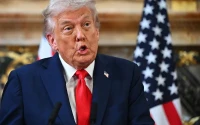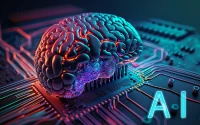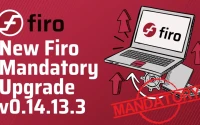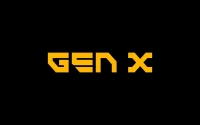Let's be honest. For the past two years, the conversation around AI has been trapped in a dizzying cycle of hype and fear. On one hand, you have the breathless proclamations of a new technological dawn. On the other, you have the grim warnings of a speculative bubble, a dot-com crash 2.0 just waiting to wipe out trillions in shareholder value. A recent Goldman Sachs report even threw cold water on the whole enterprise, suggesting many firms pouring billions into AI have yet to see any real gains. The market is skittish, and even the biggest bulls are starting to look over their shoulders.
And into that fog of uncertainty steps Jamie Dimon.
Dimon, the formidable CEO of JPMorgan Chase, is hardly known for being a starry-eyed optimist. He’s a banker’s banker, a man who recently told the world to stockpile "bullets, guns and bombs" because the world is a dangerous place. He’s the guy who is currently warning anyone who will listen that the stock market is overheated and ripe for a serious correction, a position outlined in reports like JP Morgan boss Jamie Dimon sounds warning on US stock market fall. So when he speaks, people listen. But what he just said about AI wasn't a warning. It was a thunderclap.
In a recent interview, Dimon—looking more like an off-duty rock star in jeans than a Wall Street titan—casually dropped a fact that should reframe this entire debate. JPMorgan spends about $2 billion a year on artificial intelligence. And, as reported in JPMorgan’s Dimon Says AI Cost Savings Now Matching Money Spent, it’s already generating about $2 billion a year in direct benefits and cost savings.
When I first read that, I honestly just had to stop and reread the sentence. It’s the kind of quiet bombshell that changes everything. This isn't a forecast. It's not a projection. It's an accounting reality. While the world is debating whether the AI party is about to end, the largest bank in America just announced that for them, the engine has already paid for its own fuel. And as Dimon himself put it, this is just "the tip of the iceberg."
The Ignition Point We've Been Waiting For
For years, massive AI investment has been like building a fusion reactor. It consumes unbelievable amounts of capital, talent, and computational power just to get it running. The skeptics have been pointing at the massive energy bill and yelling, "See! It's a boondoggle!" They’ve been waiting for the project to be abandoned, for the costs to become unsustainable. What they missed is the physics of the thing. The goal was never just to spend the energy; it was to reach ignition—the point where the reaction becomes self-sustaining and starts producing more energy than it consumes.
JPMorgan just announced ignition.
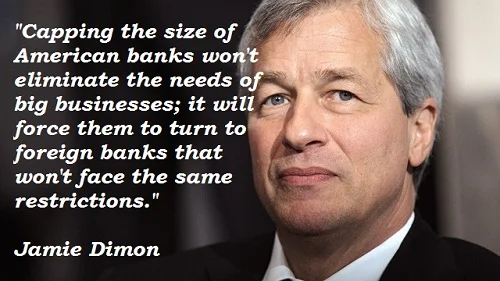
This isn't about one bank's balance sheet. This is the first large-scale, undeniable proof of concept for the entire AI economy. Dimon confirmed their in-house large language model is already being used by 150,000 employees a week. Let me clarify what that means—in simpler terms, they’ve built a version of ChatGPT that knows every secret, every transaction, and every market report inside JPMorgan, and it works exclusively for them. The competitive advantage that creates is almost impossible to quantify.
So, is this a bubble like the dot-com era? That comparison has always felt lazy to me. The dot-com bubble was built on speculative metrics like "eyeballs" and "user growth," with profitability being a vague, distant dream. This is different. The AI revolution is being built on something far more concrete: measurable productivity. It's not about how many people visit a website; it's about how many hours of human labor are saved, how many fraudulent transactions are caught, how many market insights are generated.
The question is no longer if this technology will create value. The only question now is who will harness it and who will be left behind. What happens when every major company reaches its own ignition point? What does our world look like when this power isn't just a cost center, but a self-funding engine of innovation across every single industry?
Beyond the Balance Sheet: The Human Equation
Of course, Dimon didn't shy away from the inevitable question: what about the jobs? He was blunt. "People shouldn't put their head in the sand. It is going to affect jobs." And he's right. It would be naive and irresponsible to pretend otherwise. This is the moment of ethical consideration we must all face. This incredible new power comes with the profound responsibility to manage its impact on people.
But the narrative of mass replacement is a failure of imagination. This is the kind of breakthrough that reminds me why I got into this field in the first place—to see technology augment, not obliterate, human potential. We've seen this movie before. When the electronic spreadsheet was introduced, pundits predicted the end of the accounting profession. Did accountants disappear? No. Their jobs evolved. They were freed from the soul-crushing drudgery of manual calculation and empowered to become strategic financial advisors.
This is that moment, magnified by a thousand. This is the moment where human ingenuity gets supercharged, where a single analyst can do the work of a team, not by being replaced, but by being empowered with a tool that can sift through mountains of data in seconds—freeing them up to ask the bigger, smarter, more creative questions we've never had time for. Dimon himself said the focus is on retraining and redeploying. You’re better off being "way ahead of the curve."
This is the paradigm shift. We’re moving from an economy based on human labor to one based on human curiosity. The value won't be in doing the repetitive work, but in knowing what questions to ask the AI. It's a future that demands more from us, not less. It demands creativity, critical thinking, and a willingness to adapt. Isn't that a more exciting future to build?
The Engine Has Ignited
Forget the noise about bubbles and market corrections for a moment. That's the weather. The JPMC announcement is climate change. It's a fundamental shift in the economic landscape. The debate over AI's ROI is, for all intents and purposes, over. The proof is on the ledger. The real work is just beginning, and the question is no longer if we're going to the future, but how fast we're willing to drive.






